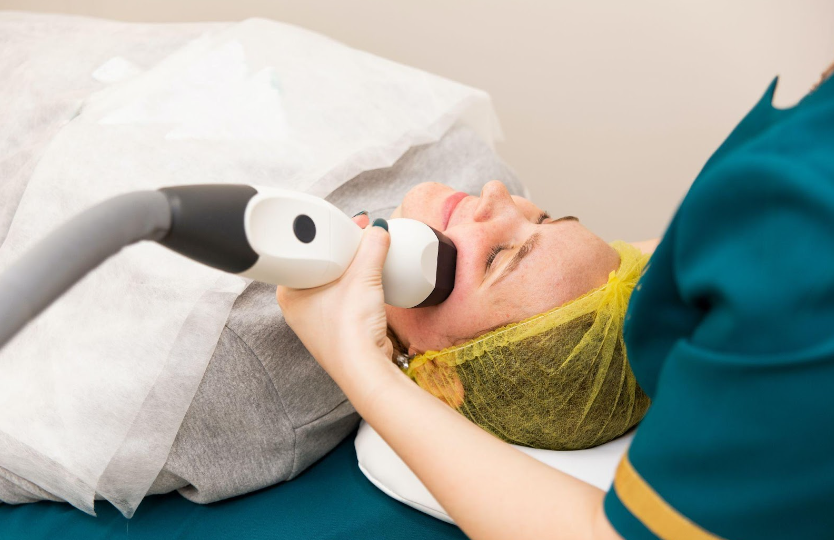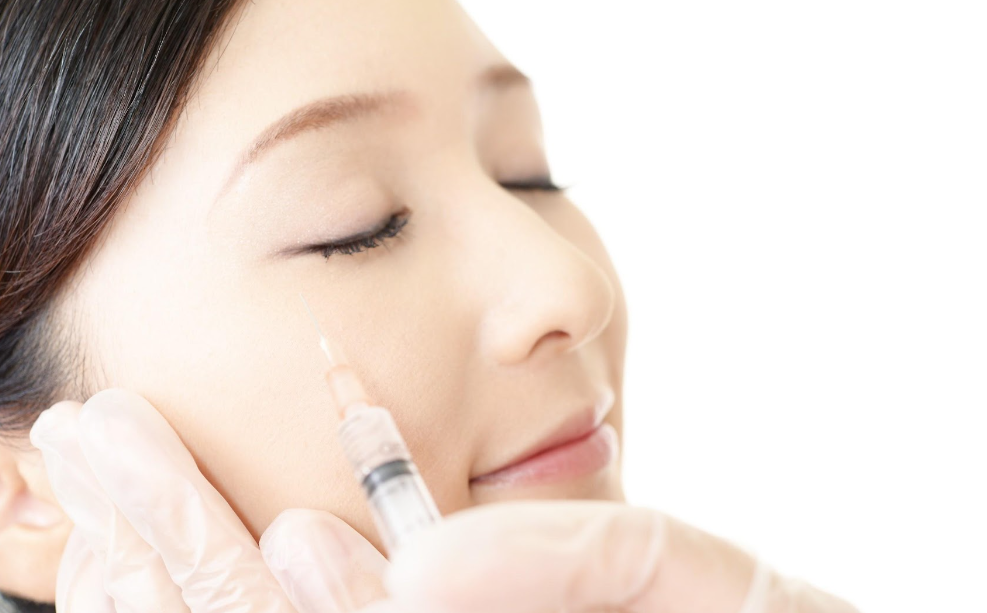Understanding Skin Conditions Associated with Allergies and Spring and When to Seek Medical Advice
Understanding Skin Conditions Associated with Allergies and Spring and When to Seek Medical Advice

As the spring season unfolds, many individuals eagerly anticipate spending more time outdoors, reveling in the beauty of blooming flowers and vibrant landscapes. However, for some, spring brings about a different experience—one characterized by itchy, irritated skin and uncomfortable allergic reactions. Skin conditions associated with allergies or heightened exposure to outdoor elements can significantly impact individuals' quality of life during this time.
Keep reading to explore various skin conditions linked to allergies and spring, and when to seek medical advice for effective management and relief.
Understanding Skin Conditions Associated with Allergies
When your body encounters an allergen, your immune system mistakenly identifies it as a threat. This triggers the release of histamine, a chemical responsible for inflammation, redness, and itching. Depending on the allergen and your sensitivity, this inflammatory response can manifest in various skin conditions.
Common skin conditions that are associated with allergies include:
Atopic Dermatitis (Eczema)
Atopic dermatitis, commonly called eczema, is a prevalent chronic inflammatory skin condition affecting people of all ages. It is characterized by periods of worsening and remission, with symptoms ranging from mild irritation to intense itching and discomfort.
Causes of atopic dermatitis include:
- Genetic Factors: Atopic dermatitis has a significant genetic component, with a family history of allergies or eczema increasing the likelihood of developing the condition. Specific gene mutations related to skin barrier function and immune response play a role in developing atopic dermatitis.
- Immune System Dysfunction: Individuals with atopic dermatitis often exhibit an overactive immune response to triggers that are typically harmless to others. This heightened immune response leads to inflammation and skin barrier dysfunction, resulting in the characteristic symptoms of eczema.
- Environmental Triggers: Environmental factors such as dry air, low humidity, harsh soaps, detergents, and certain fabrics can exacerbate eczema symptoms by drying out the skin and triggering inflammation. Allergens such as pollen, dust mites, pet dander, and mold can also provoke allergic reactions in individuals with atopic dermatitis.
Symptoms include:
- Dry, itchy skin
- Eczematous rash
- Skin sensitivity to certain fabrics, perfumes, skincare products, or environmental triggers can exacerbate eczema symptoms and trigger flare-ups.
Management and treatment options include:
- Emollients and Moisturizers: Keeping the skin well-hydrated is crucial for managing eczema symptoms and maintaining skin barrier function. Emollients and moisturizers help trap moisture in the skin, preventing dryness and reducing the risk of flare-ups.
- Topical Steroids and Immunomodulators: Topical corticosteroids reduce inflammation and itching during eczema flare-ups. In moderate to severe eczema cases, topical calcineurin inhibitors, such as tacrolimus and pimecrolimus, may suppress the immune response and alleviate symptoms.
- Avoidance of Triggers: Identifying and avoiding triggers that exacerbate eczema symptoms is essential for managing the condition effectively. This may involve minimizing exposure to allergens, using gentle skincare products, and maintaining a healthy indoor environment with adequate humidity.
- Antihistamines: Oral antihistamines can help alleviate itching and reduce the urge to scratch, particularly at night when eczema symptoms often worsen.
- Lifestyle Modifications: Adopting healthy lifestyle habits such as wearing soft, breathable fabrics, avoiding hot baths or showers, and practicing stress-reduction techniques can help minimize eczema flare-ups.
Allergic Contact Dermatitis
Allergic contact dermatitis (ACD) is a common skin condition characterized by inflammation and skin irritation resulting from exposure to allergens or irritants. Unlike irritant contact dermatitis, which directly results from contact with a substance that damages the skin, allergic contact dermatitis arises from an immune-mediated response to specific allergens.
Allergic contact dermatitis can develop in response to exposure to a wide range of allergens, including plants (such as poison ivy, poison oak, and poison sumac), metals (like nickel and cobalt), cosmetics, fragrances, preservatives, topical medications, and latex. Sensitization to allergens typically occurs after repeated or prolonged exposure, with symptoms manifesting upon subsequent contact with the allergen.
Certain occupations, such as healthcare workers, hairdressers, and individuals working in manufacturing or construction, may be at higher risk of allergic contact dermatitis due to frequent exposure to potential allergens.
Symptoms of allergic contact dermatitis include:
- Redness
- Swelling
- Itching
- Burning or stinging sensations
- Blisters or vesicles
- Dry, cracked skin
Diagnosing allergic contact dermatitis involves a thorough medical history, including details of recent exposures to potential allergens and a physical examination of the affected skin.
In some cases, patch testing identifies specific allergens that trigger allergic reactions. Patch testing involves applying small amounts of potential allergens to the skin and monitoring for reactions over a specified period.
Here are the management strategies you may follow:
- Identification and Avoidance of Allergens: The cornerstone of managing allergic contact dermatitis involves identifying and avoiding the allergens responsible for triggering skin reactions. This may require careful reading of product labels, selecting hypoallergenic or fragrance-free products, and wearing protective clothing or gloves when handling potential allergens.
- Topical Treatments: Topical corticosteroids reduce inflammation and alleviate symptoms during allergic contact dermatitis flare-ups. Non-steroidal options, such as calcineurin inhibitors and topical antihistamines, may also be prescribed for short-term relief.
- Emollients and Moisturizers: Emollients and moisturizers help hydrate the skin, restore the skin barrier, and alleviate the dryness and itching associated with allergic contact dermatitis. Regular application of moisturizers can help prevent flare-ups and maintain skin health.
- Cool Compresses: Cool or wet dressings applied to affected areas can provide soothing relief and help reduce inflammation and itching.
- Oral Antihistamines: Oral antihistamines help to relieve itching and discomfort associated with allergic contact dermatitis, particularly at night when symptoms can interfere with sleep.
- Medicated Ointments and Creams: In severe or persistent allergic contact dermatitis cases, dermatologists may prescribe medicated ointments or creams containing immunomodulators or corticosteroids for long-term management.
- Education and Prevention: Educating individuals about potential allergens, proper skin care techniques, and strategies for preventing allergic contact dermatitis can empower them to take proactive steps to protect their skin and minimize the risk of future flare-ups.
Urticaria (Hives)
Urticaria, or hives, manifest as raised, itchy welts on the skin and can be acute or chronic.
Allergic reactions to pollen, insect bites, certain foods, or medications are common triggers for hives. Symptoms include red welts that vary in size and shape, often accompanied by itching or burning sensations. While mild hives are possible to manage with over-the-counter antihistamines, severe or persistent hives warrant medical evaluation.
Skin Conditions and Springtime
Here are the skin conditions you may experience during the springtime:
Pollen Allergies and Skin Sensitivities
Springtime releases pollen from trees, grasses, and weeds, triggering allergic reactions in susceptible individuals. Pollen allergies, also known as hay fever or allergic rhinitis, can manifest as a range of symptoms, including sneezing, nasal congestion, itchy eyes, and skin irritations. Pollen particles can land on the skin and exacerbate existing skin conditions such as eczema, allergic contact dermatitis, and urticaria (hives).
Individuals with pollen allergies may experience heightened skin sensitivity and increased susceptibility to allergic reactions during peak pollen seasons.
Increased Outdoor Activity and Skin Exposure
With the arrival of spring, people tend to spend more time outdoors, engaging in activities such as gardening, hiking, and outdoor sports. Increased exposure to environmental elements, including sunlight, wind, and humidity, can impact skin health and contribute to skin dryness, sunburn, and irritation. Insect bites and stings from bees, wasps, mosquitoes, and other outdoor pests become more prevalent during the spring, potentially triggering allergic reactions and skin inflammation.
Effective Strategies for Managing Springtime Skin Concerns
Let us explore some practical ways to manage skin issues during the spring season:
- Allergen Avoidance: Minimize exposure to known allergens by staying indoors during peak pollen hours, keeping windows closed, and using air purifiers to filter indoor air.
- Skin Protection: Practice sun safety by wearing protective clothing, applying broad-spectrum sunscreen, and seeking shade during peak sunlight hours to prevent sunburn and photoallergic reactions.
- Hydration and Moisturization: Maintain skin hydration by drinking plenty of water and using moisturizers to replenish lost moisture and prevent dryness and irritation.
- Allergy Management: Consider allergy testing to identify specific triggers and develop personalized allergy management plans with healthcare professionals' guidance.
- Skin Barrier Maintenance: Use gentle cleansers and emollients to cleanse and moisturize the skin, supporting optimal skin barrier function and reducing the risk of allergen penetration and skin sensitivities.
- Prompt Treatment of Symptoms: Seek medical advice if symptoms persist or worsen despite home remedies, as timely intervention can prevent complications and promote symptom relief.
When to Seek Medical Advice
Get medical advice if you have:
Persistent Symptoms
If skin symptoms persist despite over-the-counter treatments or home remedies, it's advisable to consult a dermatologist. Chronic or recurring skin conditions may require a personalized treatment plan and professional medical guidance for effective management.
Severe Reactions
Severe allergic reactions characterized by swelling, difficulty breathing, or anaphylaxis require immediate medical attention. Individuals experiencing these symptoms should seek emergency medical care without delay.
Impaired Quality of Life
Skin conditions impairing daily functioning, sleep, or overall quality of life warrant medical evaluation. Dermatologists can assess the severity of the condition, identify triggers, and recommend appropriate treatment options to alleviate symptoms and improve well-being.
Final Thoughts
While you can manage many skin conditions with self-care measures and over-the-counter treatments, persistent or severe symptoms necessitate professional medical evaluation and intervention. By identifying triggers and seeking timely medical advice, individuals can better navigate the challenges of allergies and springtime skin concerns, enjoying the season to its fullest potential while maintaining skin health and well-being.
The team at
Pine Belt Dermatology has expert advice to help you manage skin conditions effectively.
Contact us today and take control of your skin's health.






Phone:
Address:
Hours of Operation:
Mon-Fri: 8:00am to 4:30pm
Phone:
Address:
Hours of Operation:
Mon-Fri: 8:00am to 4:30pm





